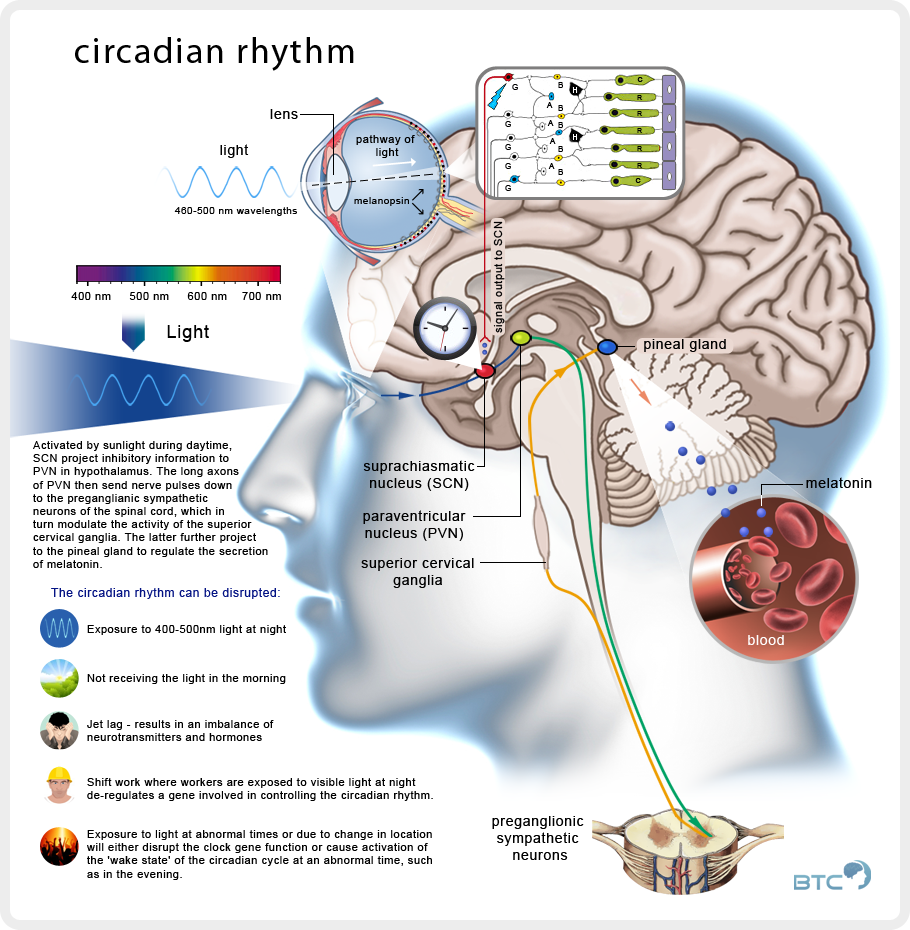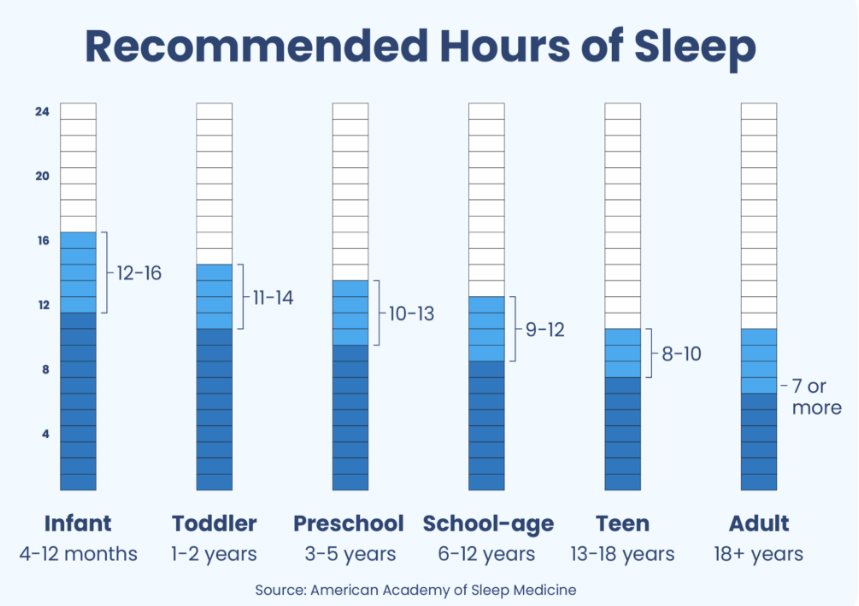Believe it or not, why we need sleep is still a mystery to scientists with no definitive answer. However, the broad understanding is sleep enables good health, improves cognitive function, and supports regeneration and recovery. To understand the reason for sleep, you need to know the science of sleep, and its importance to daily life.
We spend about a third of our lives asleep. While many theories have been proposed, the exact reason why we sleep remains one of the most intriguing mysteries in neuroscience. As much as we need food and water to survive, we need sleep too. Lack of sleep impairs your brain’s neural pathways, inhibiting your ability to concentrate, create memories, and learn new things. Sleep helps in nerve cell communication and regeneration. Studies have proved how sleep repairs the damage of broken DNA built up in our brain cells during the day, which makes sleep a super important necessity for optimal brain function.
The Science and Anatomy of Sleep

Being a dynamic process, we first need to understand the science and anatomy of sleep and how various structures in the brain play a major role in sleep.
- The Hypothalamus: The hypothalamus is a peanut-sized structure between the thalamus and pituitary gland, regulating sleep and waking. Within the hypothalamus is the SCN or Suprachiasmatic Nucleus, consisting of clusters of 20,000 circadian oscillator neurons constantly processing information when our eyes are exposed to light and darkness. These work in sync with the 24-hour solar day via a pathway beginning from the retina, which helps synchronize our internal biological rhythm and sleep cycles. It is the SCN, called the “biological clock” or the “master clock,” which regulates the circadian rhythm in the body.
- The Brain Stem: This includes structures like the pons, medulla, and midbrain, which communicate with the hypothalamus to control wakefulness and transition into different stages of sleep. Along with the hypothalamus, it produces GABA (Gamma-aminobutyric acid), a stress-reducing chemical which inhibits neuronal excitability and nerve transmission to enhance sleep. GABA helps relax our muscles, induces temporary motor paralysis, and restricts muscle movement during REM sleep to prevent our bodies from acting out our dreams. Without this function, you would likely be sleepwalking or even eating in your sleep.
- Thalamus: Transmits information from the senses to the cerebral cortex (The brain’s outer covering functions as an information and memory processor). During sleep, the thalamus shuts out the external world, except during REM sleep when it activates to relay cortex images, sounds, and other sensations to provide content for dreams.
- The Pineal Gland: Located within the brain’s two hemispheres, it processes signals from the SCN to produce melatonin. This hormone activates the need to sleep as darkness approaches. According to scientists, the peaking and reducing melatonin over time helps sync the body’s circadian rhythm to the external cycle of light and dark.
- The Basal Forebrain: Located near the front and bottom of the brain, it helps promote sleep and wakefulness. It contains cells that release adenosine (a chemical by-product of cellular energy consumption) to support the body’s sleep drive. When you drink coffee, the caffeine works against sleepiness by blocking adenosine function.
- The Amygdala: An almond-shaped structure involved in processing emotions, consolidating emotional experiences and memories to influence dream content and emotional regulation during REM sleep.
Sleep Mechanisms
In sleep, there are two main mechanisms: The circadian rhythm and homeostasis functioning to ensure you get restful sleep.
The Circadian Rhythm

The circadian rhythm is the internal biological clock operating on a 24-hour cycle, controlling various physiological functions from wakefulness to body temperature, metabolism, and the release of hormones like melatonin at night. The circadian rhythm regulates sleep timing, makes you sleepy at night, and helps you wake up as light approaches without an alarm. Your circadian rhythms synchronize with environmental cues such as light and temperature to determine the actual time of day. Still, sometimes, they can function even without these cues. As mentioned earlier, orchestrating the smooth function of your circadian rhythms is a master clock in the suprachiasmatic nucleus (SCN).
Sleep-Wake Homeostasis
Sleep-wake homeostasis regulates our sleep needs based on prior wakefulness and sleep history. In sleep-wake homeostasis, the longer you are awake, the stronger your body’s need for restorative sleep required to offset the accumulated sleep debt. Several factors affect the sleep-wake drive, such as stress, environment, temperature, medical conditions, diet, and medications. The biggest culprit adversely affecting sleep-wake drive at night is exposure to light because that is when the special retina cells process light exposure, signaling your brain if it is day or night. This can quicken or delay the sleep-wake drive, which is why switching off electronic screen devices an hour or two before sleep is always recommended.
Moreover, those sleeping late or working a night shift will experience a disrupted circadian rhythm. It is a no-brainer to realize how working against a normal body process creates havoc in the smooth functioning of your body, leading to several health issues because of a mismatch between the body’s internal clock and the actual clock.
Why We Need Sleep
By now, you must have understood why sleep is important for health and cognitive function. Although a mystery, these are the most proven and evident reasons your body needs rest.
Restoration and Recovery
The biggest reason the experts agree upon is how sleep helps rejuvenate and rest the mind and body. It is a state during which our body recovers from all the oxidative stress we put our cells through during the day. Sleep helps repair and regenerate tissues, strengthen the immune system, and consolidate memories. For example, growth hormone is primarily released during deep sleep, aiding tissue repair and growth.
Cognitive Functions
Sleep contributes to healthy cognitive functions such as learning, memory consolidation, and problem-solving. Research has shown that different stages of sleep are associated with distinct memory processes, with slow-wave sleep (deep sleep) being particularly important for optimum brain health, and strengthening the brain to integrate new information and experiences into our existing knowledge base.
Emotional Regulation
Sleep is necessary for emotional well-being. Sleep deprivation or poor-quality sleep leads to irritability, mood disturbances, and increased emotional reactivity. Sleep helps various brain processes function well, regulates emotions, helps us cope with stress, and maintains emotional balance.
Energy Conservation
One of the earliest theories about sleep is the energy conservation hypothesis by Dr. Ian Oswald, a sleep researcher and psychiatrist. The theory states that sleep helps us conserve energy when we are less active and when food is scarce. It suggests that rest evolved as an adaptive mechanism to reduce energy expenditure during the nighttime. Research supporting this theory proved that sleep deprivation leads to low productivity and health problems.
Brain Detoxification
In recent years, research has uncovered a fascinating hypothesis known as the glymphatic system. This theory suggests that sleep is essential for the brain’s detoxification process. During sleep, the brain’s cells shrink, allowing cerebrospinal fluid to flow more freely and remove waste products accumulated throughout the day. This cleaning process may be crucial for maintaining brain health and preventing neurodegenerative diseases.
Memory Consolidation
Some research focuses on the role of sleep in memory consolidation. Theories suggest that sleep helps us process and organize information, making it easier to retrieve later. It has also been hypothesized that REM (rapid eye movement) sleep is important in memory consolidation of procedural and emotional memories.
Hormone Production and Sleep
Your body produces various hormones throughout the day, some of which could be associated with your sleep pattern or circadian rhythms. For example, your body releases hormones like cortisol in the morning to promote alertness and help you awaken. Other hormones have 24-hour ways that vary with age; for instance, in children, the hormones that signal the glands to release testosterone, estrogen, and progesterone are produced in pulses at night, increasing with the onset of puberty.
Metabolism and sleep
Circadian clocks in the liver, fat cells, and muscle impact how your body manages fat. For example, the liver’s biological clock prepares it to help digest fats at the required time. If you eat at inappropriate times, your body may handle fat differently, which could lead to weight gain. Lack of quality sleep can result in:
- Increased levels of hormones like ghrelin and leptin, which control hunger
- Reduced insulin response
- Decreased ability to respond to insulin
- Overeating of fatty, sugary, and salty foods
- Reduced physical activity
- Metabolic syndrome
Heart, Circulatory System, and Sleep
During Non-Rem Sleep, your blood pressure and heart rate reduce as your parasympathetic system begins to control your body. Your heart does not need to work in full mode. When awake and during REM sleep, the sympathetic system takes over, increasing blood pressure and heart rate to normal levels when awake and relaxed. Lack of sleep at night can increase the risk of:
- Heart disease
- Obesity
- stroke
- Hypertension
Sleep and Immune system
Sleep helps the immune system release a protein called cytokines. While some cytokines promote sleep, others are removed if you have any inflammation infection or are under stress. Sleep deprivation may compromise your body’s cytokine response and reduce disease-fighting cells and antibodies. Lack of sleep increases your risk of contracting viruses such as a cold and even delays recovery when sick.
The Stages of Sleep
During sleep, our bodies transition through four phases of sleep, which make up a sleep cycle. The first three stages are NREM (Non-Rapid Eye Movement) sleep, and the final stage is REM (Rapid Eye Movement) sleep. All four stages repeat at least four to six times during normal sleep, the duration of which is approximately 90-120 minutes. Quality sleep can be described as that which has gone through at least four cycles, with deep sleep being the most important. Here, too, the circadian clock plays a role where the sync of light and darkness can greatly impact the quality of deep sleep.
(Read a detailed version of the four stages of sleep and why stage three is so important.)
How Much Sleep Do We Need

Healthy adults need a minimum of seven hours of quality sleep every night. Sleep varies with age, so babies, children, and teens need more rest to promote growth and development. While babies no doubt will get the sleep they deserve, it needs to be emphasized how a modern lifestyle dependent on technology has greatly reduced a teenager’s duration of sleep, which should be no less than 8 hours. No magic number of sleep hours is common to every individual. However, research has proven how people and adolescents generally get less sleep due to work, social media entertainment, and other activities. Watch the video on sleep from the sleep foundation.
Conclusion
Whether or not there is an accurate answer to why we need sleep, one thing is certain: your daily experience and bodily function will tell you how you need it. You don’t need research to prove how sleep is so important to health and well-being. Several factors, such as poor lifestyle habits, poor sleep hygiene, illness, health conditions, and medications, can impact sleep, but following a fixed routine and tips for sleep can help you get the quality of sleep your body deserves.

